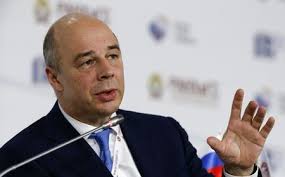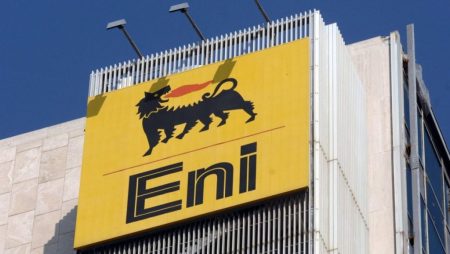By Hector IGBIKIOWUBO –
Fuel subsidy cost the Nigerian state N1.3 trillion (about $8.38 billion) in the 2010 fiscal year alone, about 25 per cent of the entire budget expenditure for the year under review. Last year, the approved amended and supplementary budget amounted to N5.159 trillion (about $33.2 billion).
Investigations have revealed that fuel subsidy incurred by the federal government may have exceeded the N700 billion mark mid-way into the year, with indications that payments to petroleum products marketers may surpass 2010 levels by the end of the year.
Sweetcrude checks also revealed that the current state of Kerosene scarcity in Nigeria may have been deliberately contrived by petroleum products marketers through unprecedented racketeering and profiteering, and the seeming inability of the federal government to curb their wanton excesses.
Government regulates the sale of Premium Motor Spirit, PMS and House Hold Kerosene, HHK, selling both at N55 and N40.90k per litre, ex-depot price respectively at the depots of the Petroleum Products Marketing Company, PPMC, a subsidiary of the state owned Nigerian National Petroleum Corporation, NNPC. The government, through the instrumentality of the Petroleum Products Pricing and Regulatory Agency, PPPRA allots quarterly imports quotas to the NNPC and petroleum products marketers and pay both parties the differential between the landed cost and the approved pump prices under a subsidy regime.
Checks however revealed that the petroleum products marketers have turned the subsidy payment regime into a huge racketeering and profiteering enterprise ripping the state of hundreds of billions each year under bogus subsidy claims for petroleum products they neither imported nor delivered to the pumps.
Half way through 2011, independent checks revealed that outstanding subsidy payments amounts to over N768 billion, while ongoing racketeering surrounding Kerosene supply and distribution appears set to raise subsidy payment claims to an all-time high by the end of the year.
Aggregate expenditure for 2011 is projected at N4,226.19billion, comprising N196.12billion for Statutory Transfers, N542.38billion for Debt Service, N2,481.71billion for Recurrent (Non-Debt) Expenditure and N1,005.99billion for Capital Expenditure. Essentially, if current rising level of subsidy incurred by the federal government is sustained till the end of the year, indications are that it could account for 28 per cent of total budget expenditure.
Petroleum marketers racketeering, profiteering
Investigations revealed that petroleum products marketers only truck-out 66,000 litres of HHK per day despite getting an average 6 million litres of same through coastal lifting and another 5.2 million litres from the refineries of the NNPC every day. Even though ex-depot price of HHK is N40.90k, petroleum marketers retail a marginal quantity at about N145 per litre to the consuming public and to the aviation industry as jet fuel at an even higher rate.
Daily average supply of DPK
In January, 2011, a daily average supply of 12,764,516.13 million litres of Dual Purpose Kerosene, DPK to the market was recorded, indicating a daily average over-supply of 4,764,516.13 million litres. Depot and petroleum products marketers loaded a daily average of 8,264,516.13 million litres, while the daily average load-out from the NNPC depots amounted to 4,500,000 litres.
In February, the daily average supply of DPK amounted to 8,573,928.57 million litres, indicating a daily average over-supply of 573,982.57 litres. The Depot and petroleum products marketers loaded a daily average of 4,073,928.57 million litres, while the average daily load-out from the NNPC depots was 4,500,000 million litres.
In March, the daily average supply of DPK was 13,354,838.71 million litres, indicating a daily average over-supply to the market of 5,354,838.71 million litres. The Depot and petroleum products marketers loaded a daily average of 8,854,838.71 million litres, while the daily average load-out from the NNPC depots amounted to 4,500,000 million litres.
In April, the daily average supply of DPK was 8,160,000.00 million litres, indicating an over-supply of 160,000.00 litres. The Depot and petroleum products marketers loaded-out a daily average of 3,660,000.00 million litres, while daily average load-out from the NNPC depots amounted to 4,500,000 million litres.
The records show that in May, the daily average supply of DPK to the market was 10,009,677.42 million litres, indicating over-supply to the tune of 2,009,667.42 million litres. The Depot and petroleum products marketers loaded a daily average of 5,509,667.42 million litres, while the NNPC depots recorded daily average load-outs to the tune of 4,500,000.00 million litres.
Checks at the PPMC revealed that the national daily average consumption of HHK is 8 million litres and that in the last 6 months the supply has outstripped the demand, begging the question, where does the rest go?
Markets for DPK in Nigeria
Investigations revealed that there are basically 5 markets for DPK in Nigeria – it is obtained at subsidised price and sold as HHK at three times the price to hapless consumers; it is blended with diesel to increase the volume (also known as ‘rice and beans’) and then sold at deregulated pump price; it is sold as aviation fuel; it is smuggled across the border and sold at over N200 per litre and finally, it is recycled and presented as imported cargo for the purposes of claiming subsidy from government.
The most popular market for DPK in Nigeria is that of HHK but even though petroleum marketers obtain DPK at subsidised ex-depot price of N40:90 from the NNPC they openly retail it at over 300 per cent the value and the government agencies charged with ensuring compliance with the stipulated regulated pump price of N50 per litre appears helpless and unable to implement the policy.
Since government deregulated the pump price of diesel, AGO, petroleum marketers have been at liberty to import whatever volume they can and retail at whatever prices to recover their cost. However, checks revealed that in order to make cut throat profits, petroleum markets have resorted to blending the volume of diesel they import with Kerosene. This way, they succeed in increasing the total volume of diesel which they then sell to the hapless consumers at deregulated prices.
Under the Olusegun Obasanjo administration, marketers successfully championed the deregulation of aviation fuel and control of the sector. Investigations revealed that since then, about the NNPC has stayed out of the supply and distribution of the product. Current Nigerian aviation industry aviation fuel consumption is estimated at 2.5 million litres per day. However, the airlines have since the deregulation of the sector accumulated a debt profile of N5 billion, making it near impossible for the banks to continue to fund importation of the product. Investigations revealed that petroleum product marketers, who now insist on being paid cash on delivery, divert volumes of DPK obtained from the NNPC/PPMC to service the needs of the aviation industry. This situation accounts for delays and cancellation of domestic flights.
It is common knowledge that petroleum products are usually moved across the border for greater profit, however, at no time has the differential between the price at which it is obtained from the NNPC depot (N40:90k per litre) and the price it is sold across the border (over N200 per litre) provided greater incentive for smugglers.
Further investigations revealed that the recycling market for DPK is also fuelled by the differential between the NNPC ex-depot price and the current pricing template of the Petroleum Products Pricing and Regulatory Agency, PPPRA. According to the current pricing template, imported HHK should retail at N156.56 per litre. Investigations revealed that petroleum marketers store cargo obtained from the NNPC, only to smuggle same volume to Cotonou, dispose of it to a ready buyer who then resells it to the NNPC as imported cargo.
Kerosene scarcity deliberately contrived
Sweetcrude checks revealed that the current Kerosene scarcity in the country may have been deliberately contrived to get government agencies such as the NNPC/PPMC to supply more cargo of the product. The 11,000 metric tons cargo of DPK imported by the NNPC/PPMC (on MT Rhino) which was supposed to finish discharging within 48 hours, took the better part of 6 days to finish discharging because none of the petroleum marketers had haulage (space for DPK storage in their tank-farm). Further investigation revealed that their storage for DPK was full, yet, there is purported scarcity nationwide.
Similarly, subsequent arrangements made by the NNPC/PPMC for supply of 14,000 metric tons of DPK (brought in on MT Zambezi) and another 4,000 metric tons (brought in on MT Zoja) for petroleum marketers was stopped by the later because their tank farms are full, they have no haulage.
In his reaction, Mr. Olaore, spokesman of the Major Marketers Association of Nigeria debunked these claims, explaining that shortly after marketers took delivery of the 11,000 metric tons, the National Association of Road Transport Owners withdrew their services. “What they gave us was 1,200 metric tons per marketer. If we are going to find any impact, it will be at the end of the week. Fortune (AP), Conoil and MRS and Mobil loaded 1,300 metric tons each, Oando has low stock and Total is also loading,” he explained.
He also disputed claims that the marketers are hoarding volumes of HHK which they sell to the aviation industry as jet fuel, adding that the major marketers have a tenders committee for procurement of ATK (aviation fuel).
“We do not use NNPC/PPMC Kerosene for aviation fuel. I am challenging those who are making this claim to come forward and prove it,” he said.
Follow us on twitter




